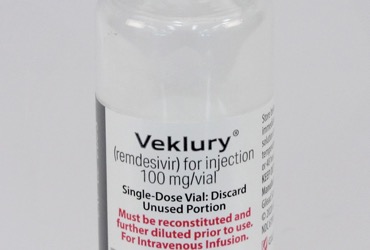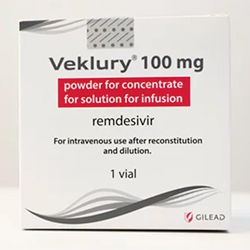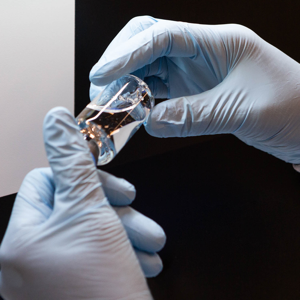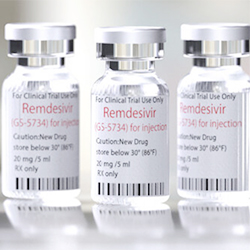By IDSE News Staff
The FDA expanded the indication to remdesivir (Veklury, Gilead) for use in COVID-19 patients with severe renal impairment, including those on dialysis.

With this approval, remdesivir is now the first and only approved antiviral COVID-19 treatment that can be used across all stages of renal disease. About 37 million people in the United States are estimated to have chronic kidney disease (CKD) and at increased risk for morbidity and mortality related to COVID-19.
“Patients with advanced CKD and end-stage kidney disease (ESKD) are at high risk for severe COVID-19 with hospitalization and mortality rates remaining high, even for those who are vaccinated. With limited clinical trial information for COVID-19 patients with advanced CKD and ESKD, few antiviral treatment options currently exist for this population,” said Meghan Sise, MD, of the Department of Nephrology at Massachusetts General Hospital, in Boston. “This latest update to the prescribing information for remdesivir now includes patients with advanced CKD and ESKD and this is an important advance for a population that remains highly vulnerable to the impacts of COVID-19.”
The updated prescribing information does not require dose adjustments for renally impaired patients and removes the requirement for estimated glomerular filtration rate (eGFR) testing before or during treatment with remdesivir. The clinical benefit of remdesivir in hospitalized patients with COVID-19 is supported by randomized controlled trials, real-world evidence and meta-analyses, but its use has previously been limited among patients with severe renal impairment due to insufficient data.
This approval for use in patients with severe renal impairment was based on results from two studies.
The phase 3, randomized, double-blind, placebo-controlled, parallel-group, multicenter REDPINE study evaluated the efficacy and safety of remdesivir in patients with severely reduced kidney function who were hospitalized with COVID-19. The trial enrolled 243 hospitalized adult participants with confirmed COVID-19 and renal impairment who were randomized in a 2:1 manner to receive remdesivir (n=163) or placebo (n=80), in addition to standard of care, and were stratified by ESKD, high-flow oxygen requirement and region.
The study closed prematurely due to feasibility issues and was underpowered to assess for efficacy because of lower-than-expected enrollment. No new safety signals were observed in the study, and no additional adverse reactions to remdesivir were identified in 163 hospitalized patients with confirmed COVID-19 and acute kidney injury (n=60), CKD (eGFR <30 mL/minute) (n=44), or ESKD (eGFR <15 mL/minute) requiring hemodialysis (n=59) and receiving remdesivir for up to five days.
Pharmacokinetic data were obtained from the REDPINE study, as well as a phase 1, open-label, parallel-group, single-dose study, which showed an absence of new safety signals associated with increased metabolite levels in patients with severely reduced kidney function.
“The approval by the FDA of Veklury for the treatment of patients with renal impairment reflects the urgency to make this medicine available to these patients, and underscores the established safety profile for Veklury,” said Anu Osinusi, the vice president, Clinical Research for Hepatitis, Respiratory and Emerging Viruses, at Gilead Sciences. “Gilead is committed to discovering, developing and providing transformational therapies for COVID-19, including for the most vulnerable populations at risk of developing severe disease.”
In the United States, remdesivir is indicated for the treatment of COVID-19 in adults and pediatric patients (28 days and older and weighing at least 3 kg) who are either hospitalized or not hospitalized and are at high risk for progression to severe COVID-19, including hospitalization or death. Remdesivir is contraindicated in patients who are allergic to it or any of its components. For full prescribing information, click here (www.gilead.com).
Remdesivir is a nucleotide analog invented by Gilead that directly inhibits viral replication inside of the cell by targeting the SARS-CoV-2 viral RNA polymerase. Based on in vitro analyses, remdesivir retains antiviral activity against recent omicron subvariants of concern, including BQ.1.1 and XBB.
Gilead is also working to advance an investigational oral antiviral, obeldesivir, for the treatment of COVID-19. Obeldesivir is a direct-acting nucleoside inhibitor of the SARS-CoV-2 RNA-dependent RNA polymerase, a critical component that the virus uses to replicate. Once metabolized, obeldesivir works in the same way as remdesivir to halt SARS-CoV-2 virus replication.
—From company press materials.




